MercoPress. South Atlantic News Agency
Tag: Taipei
-
Tuesday, January 12th 2021 - 08:05 UTC
Taipei releases new passport which prominently displays the word TAIWAN
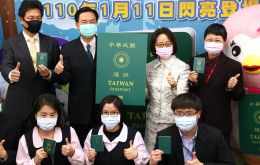
Taiwan has released a new passport and lawmakers and officials were among the people who lined up early to apply for the redesigned document, which prominently displays the word “Taiwan,” while minimizing the English name “Republic of China” (ROC).
-
Tuesday, October 16th 2018 - 08:23 UTC
US warns Central America to be cautious about relations with Beijing

US Vice President Mike Pence warned Central American nations to be cautious when building relations with China, which has been increasingly active in the region. Amid mounting tensions between the United States and China, Pence brought up ties with Beijing as he met in Washington with leaders of El Salvador, Guatemala and Honduras as well as Mexico's foreign secretary.
-
Friday, September 14th 2018 - 08:42 UTC
US comes out strongly in support of Taipei in its influence policy dispute with Beijing
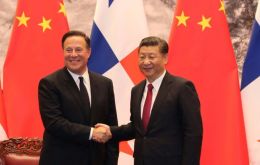
The State Department announced last week that it would temporarily recall U.S. ambassadors to the Dominican Republic, El Salvador and Panama for consultations in Washington. The meetings will focus on recent decisions by Latin American countries to no longer recognize Taiwan and ways the U.S. can “support strong. independent, democratic institutions and economies throughout Central America and the Caribbean”
-
Tuesday, June 12th 2018 - 08:32 UTC
US opens new US$ 250 million de facto embassy in Taipei
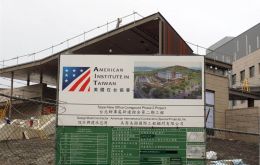
While the world watches the summit between president Donald Trump and Kim Jong Un unfold, another significant event will take place elsewhere in Asia. On June 12 in Taipei, Taiwan and the US will jointly mark the establishment of a new facility for the American Institute in Taiwan (AIT), the US’s de facto embassy in the country. Politicians from both nations are attending a ceremony to commemorate the US$ 250 million complex, which will open formally later this year.
-
Thursday, May 3rd 2018 - 08:29 UTC
Dominican Republic drops Taiwan and establishes relations with Beijing
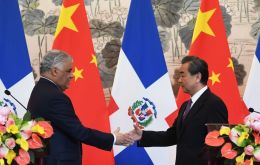
The Dominican Republic and China announced on Tuesday they were establishing diplomatic relations as the Caribbean country became the latest nation to dump Taiwan, leaving it with just 19 diplomatic allies around the globe. Taipei said it was “deeply upset” at the decision, which it blamed on “dollar diplomacy”. The move deepens the island's international isolation while its giant neighbor flexes its economic and political might on the global stage.
-
Monday, February 12th 2018 - 12:29 UTC
Warning of more volatility in Asian Markets

After last week's global rout, Asian markets struggled to hold early gains with analysts warning of further volatility across trading markets.
-
Thursday, July 11th 2013 - 07:04 UTC
China blesses Taiwan economic accords if ‘one-China’ policy is respected
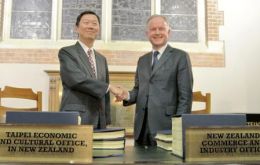
China accepts that Taiwan signs economic cooperation agreements with other countries as long as they are not political and those countries do not interfere with the ‘one China policy’ which considers the island a province part of the nation, and not two nations as defended by Taipei.
-
Monday, May 21st 2012 - 06:39 UTC
Taiwan demands from Latam allies “fair, legal and effective” cooperation relation
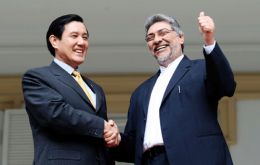
Taiwan will continue to cooperate with Latin America as long as the relation is fair, legal and effective, said re-elected president Ma Ying Jeou who also described that links with Beijing will continue to be: “no unification, no independence and no arms”.
